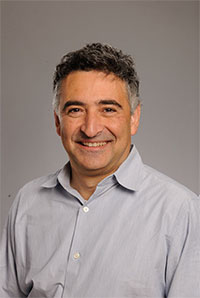Arash Grakoui, PhD
Professor of Medicine, Department of Medicine, Division of Infectious Diseases
Professor of Microbiology & Immunology
Core Scientist, Emory National Primate Center
Investigator, Emory Center for AIDS Research
Member, Cancer Immunology Research Program, Winship Cancer Institute
Dr. Grakoui joined the Emory Vaccine Center in the fall of 2004 and is now a Professor jointly appointed in the Departments of Medicine, Division of Infectious Diseases and Microbiology and Immunology at the Emory University School of Medicine. His laboratory is focused on understanding the host immune response to hepatitis C virus (HCV) in order to better facilitate vaccine development. Dr. Grakoui trained initially in molecular virology studying RNA replication and polyprotein processing of alphaviruses (Sindbis) and flaviviruses (yellow fever and HCV) before pursuing his PhD in immunology at Washington University in St. Louis. During his postdoctoral training as a Cancer Research Institute Postdoctoral Fellow at The Rockefeller University, Dr.Grakoui combined his two areas of interest, virology and immunology, to systematically dissect the role of HCV-specific effector lymphocytes in HCV infection. The goal of his lab is to understand the inextricable connectivity between HCV, the immune system, and consequent liver damage.
Research Interests:
Please seee Grakoui's lab website for research interests, lab members, and current projects.
